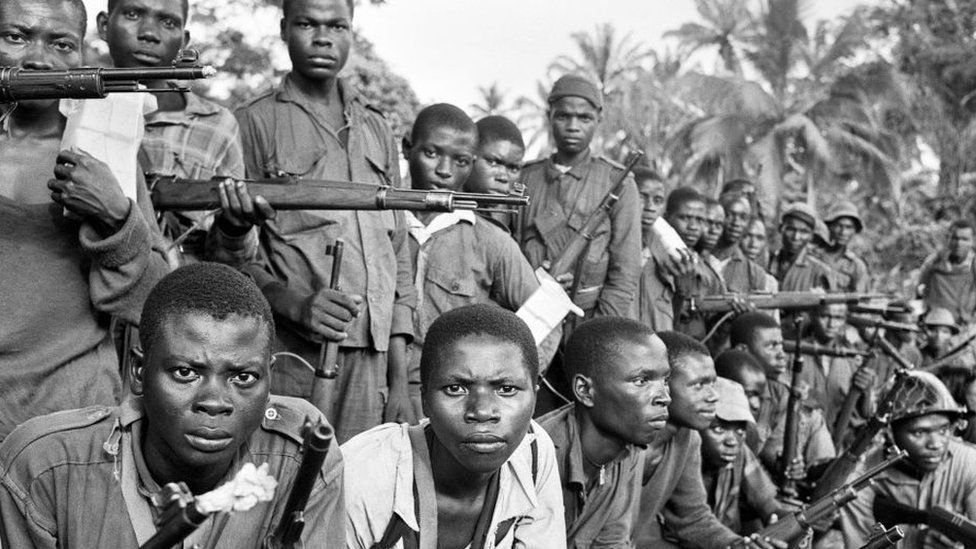General News
[PHOTOS] Meet the Nigerians who want Israel to Accept them as Jews

Rocking back and forth, Shlomo Ben Yaakov reads from a Torah scroll at a synagogue on the outskirts of Nigeria’s capital, Abuja.
Intermittently his soft mellow voice rises in Hebrew and he is joined by the dozens who recite after him.
Most do not fully understand the language, but this small Nigerian community claims Jewish ancestry dating back hundreds of years – and they are left frustrated by a lack of recognition by Israel.
“I consider myself a Jew,” says Mr Yaakov.
Outside the Gihon Hebrew Synagogue in the suburb of Jikwoyi a table is laid inside a tent built from palm leaves to celebrate Sukkot, a festival that commemorates the years Jews spent in the desert on their way to the Promised Land.
“Just as we are doing this now, they are doing same in Israel,” says Mr Yaakov, as people share traditional cholla bread (baked at the synagogue) and wine from small cups being passed around.
He is an Igbo – one of Nigeria’s three dominant ethnic groups which originates in the south-east of the country. His given Igbo name is Nnaemezuo Maduako.
Many Igbos believe they have Jewish heritage as one of the so-called 10 lost tribes of Israel, though most are not practising Jews like Mr Yaakov. They comprise less than 0.1% of the estimated 35 million Igbos.
These tribes were said to have disappeared after being taken into captivity when the northern Israelite kingdom was conquered in the 8th Century BC – and the Ethiopian Jewish community, for example, is recognised as one of them.
Igbo customs such as male circumcision, mourning the dead for seven days, celebrating the new moon and conducting wedding ceremonies under a canopy have reinforced this belief about their Jewish heritage.
‘No proof’
But Chidi Ugwu, an Igbo who is an anthropologist at the University of Nigeria in Enugu, says this identification with Judaism emerged only after the Biafran civil war.
The Igbos had been fighting for secession from Nigeria, but lost what was a brutal conflict between 1967-1970.
Some people “were looking for some psychological boost to hang on to” so began to make the Jewish connection, he says.
They saw themselves as persecuted people, much as Jewish people have been through history, especially during the Holocaust.
“It is insulting to call the Igbos the lost tribe of anybody, there is no historical or archaeological evidence to back that up,” he told the BBC.
He argues that as evidence suggests the Igbos were among those who migrated out of Egypt several thousand years ago, it may be that Jews picked up Igbo customs when they went there.
Several years ago controversial efforts were made to prove a genetic lineage, but a DNA test found no Jewish connection.
Rabbi Eliezer Simcha Weisz, chairman of the foreign affairs department of the Rabbinate Council of Israel – the body that determines claims of Jewish ancestry, is also in no doubt.
“They claim to be one of the descendants of Gad, one of the sons of our forefather Jacob – but they can’t prove their grandparents were Jewish,” he told the BBC.
“And the customs they speak of, you can find people all over the world who have Jewish practices.”
He said unless the Nigerian Jews converted to Judaism – a process that entails various rituals and appearing before a Jewish court (which is unavailable in Nigeria) – they would not be recognised.
Mr Yaakov regards the idea of having to go through a conversion as an insult.
“As a convert we would be seen as second-class citizens,” he says.












![JUST IN: Bibiani-Ahwiaso MCE Dead After A Tragic Accident [VIDEO]](https://enewsghana.com/wp-content/uploads/2022/07/FotoJet-1-5-80x80.jpg)
!["I Am One Of The Black Stars" - Inaki Williams Says As he announces Nationality Switch [WATCH]](https://enewsghana.com/wp-content/uploads/2022/07/Imaki-80x80.jpg)
You must be logged in to post a comment Login